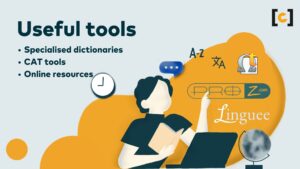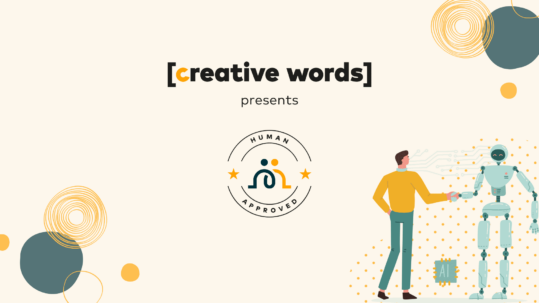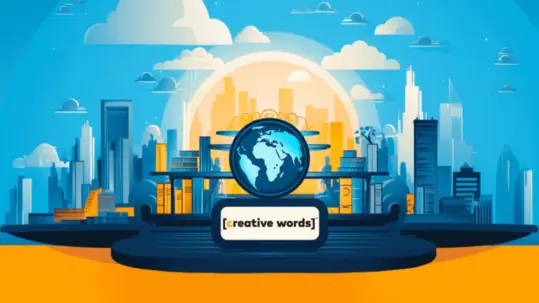
19 May Translator for publishing houses: what they do and how you become one
If you have a passion for foreign languages and literature, translating for publishing houses might be the right profession for you. In this article, we will explore the main tasks of a translator for publishing houses, how to become a professional in this field, and the useful tools for doing this job.
What is editorial translation
Editorial translation is the translation of literary, technical, or scientific texts intended for publication by a publishing house. Editorial translation requires not only a good knowledge of the source and target languages but also a deep understanding of the culture of both countries.
The editorial translator must, therefore, be able to capture the style and tone of voice of the original author while translating the text into the target language. Furthermore, the translator must be able to take into account the cultural differences between the two countries to ensure that the text is appropriate for the target audience.
What a translator for publishing houses does
A translator for publishing houses is a professional who translates written texts, often with literary or cultural content, from one language into another. This job requires an in-depth knowledge of the languages involved, a good command of the culture of both countries, and a sound competence in translation technique.

The main tasks of the translator for publishing houses include reading and analyzing the original text, terminology and cultural research, translating the text, and revising the translated text.
As already mentioned, the translator for publishing houses can work on a wide range of materials, including novels, essays, short stories, poems, magazine articles, catalogs, brochures, and websites. In addition, those in this profession may be called upon to translate legal or administrative documents, such as publishing contracts, licenses, and publication permits.
How to become a translator for publishing houses
Let us now see what the main requirements are for embarking on this career. To become a translator for publishing houses, it is essential to know at least two foreign languages at an advanced level. It is important to be able to understand the linguistic and cultural nuances of the original text and to convey them in the translated text. In addition, it is essential to master translation techniques, such as adaptation, localization, and transcreation, to create a text that is faithful to the original and at the same time fluent and pleasant to read in the target language.
To work as a translator for publishing houses, it is advisable to have a degree in languages or translation. Indeed, these qualifications guarantee a solid linguistic and cultural background and in-depth knowledge of translation techniques. However, it is also possible to pursue this career with a different course of study, as long as you have the necessary linguistic and cultural skills to ensure quality translations.

Moreover, even if you have chosen to embark on a university course related to translation, or if you are already practicing this profession, it is a good idea to make a commitment to constantly update and expand your knowledge. To this end, it can be useful to attend specific training courses, both in the language and translation fields, but also to obtain certifications that are recognized internationally, such as those offered by the American Translators Association (ATA) or the Institute of Translation and Interpreting (ITI). This is because, in addition to being a way to further increase one’s training and knowledge of the job field, it can also increase one’s professional credibility.
Furthermore, if you are at the beginning of your career, it is important to gain practical experience through internships, collaborations with publishing houses, or freelance work. We also suggest specializing in a certain field, such as literary translation, technical translation, or legal translation, to increase your chances of finding a job in this field.
Finally, a very important, perhaps often underestimated, aspect is networking: attending conferences, seminars, and workshops on the world of translation and publishing can help you make contacts and learn about the latest trends in the sector.
Useful tools for the work of the translator for publishing houses
To do their job effectively, the translator for publishing houses can make use of a number of useful tools, including:
- Specialized dictionaries: these dictionaries provide definitions, synonyms, and translations specific to a particular field, such as medicine, law, or technology. They are indispensable to ensure the terminological correctness and consistency of the translated text.

- Computer-aided translation software (CAT tools): as we have already mentioned many times, these programs help translators manage and organize their work, memorizing translations already done and suggesting similar translations based on a database of previous translations (thanks to translation memory). Some examples of CAT tools are SDL Trados Studio, MemoQ, and Wordfast. In the publishing field, these tools can also be useful.
- Online resources: there are many websites and forums dedicated to translation, where you can find glossaries, guides, advice, and support from other professionals.
Examples of software and resources available on the market
Besides the already mentioned SDL Trados Studio, MemoQ, and Wordfast, there are other useful software and resources for the translator for publishing houses, including:
- OmegaT: a free and open-source CAT tool, suitable for first-time translators.
- Linguee: a bilingual search engine that compares translations of similar texts to provide language suggestions and solutions.
- Proz.com: an online platform dedicated to translation professionals, where one can find jobs, participate in discussions and access resources and training.
Conclusions
All in all, the job of a translator for publishing houses is a stimulating challenge that requires a mix of linguistic, cultural, and technological skills. If you are passionate about the field and want to engage in training and experience, becoming a translator for publishing houses could be the right career for you.
Creative Words is an ISO-certified translation agency that has been working for years with companies all over the world. If you need to translate important documents for your company, please contact us without obligation: we will assess your situation and needs together with you and propose a solution in line with your needs, expectations, and budget.






